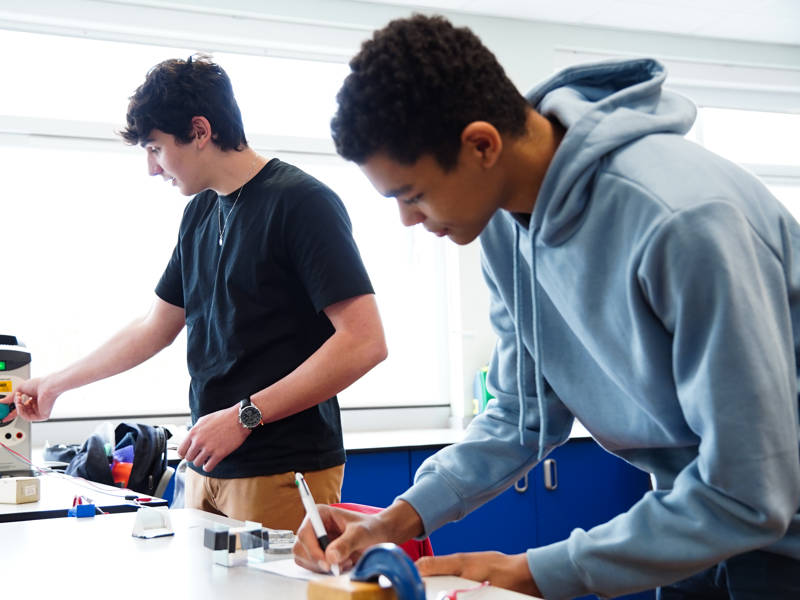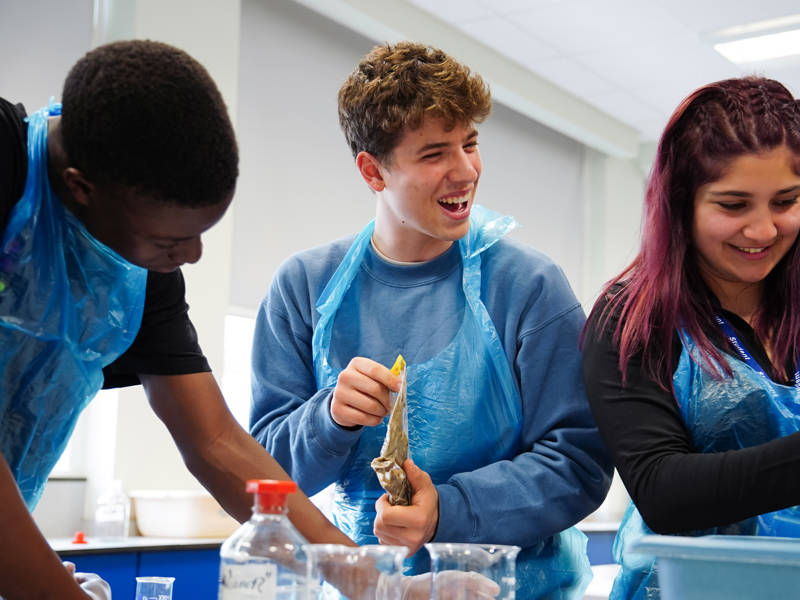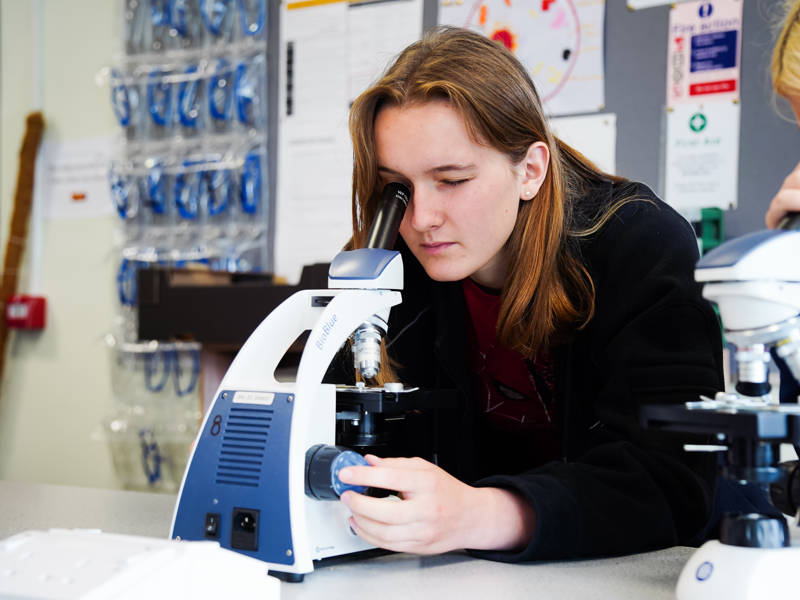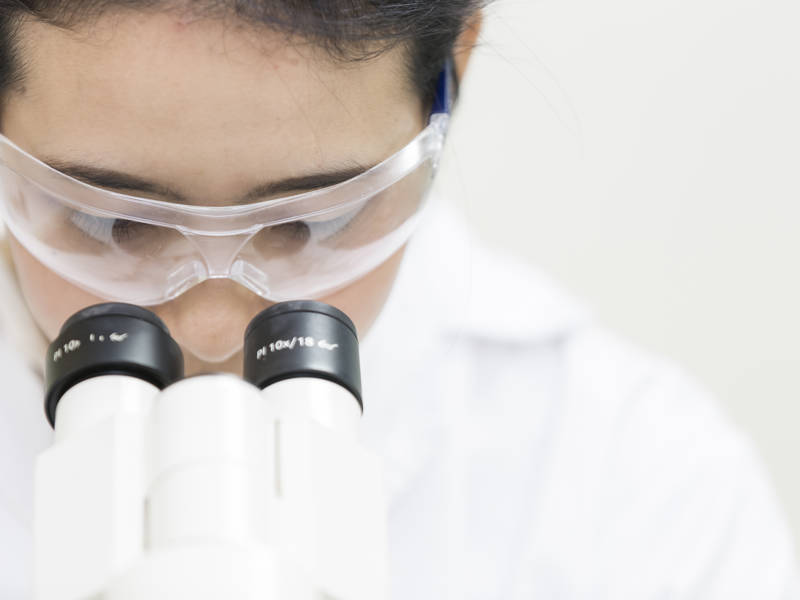A Level Physics
Course Code: Q100156
Key Information
Course type
A Levels
Campus:
Sixth Form Campus
Start Date:
09 Sept 2024
Duration:
2 years
Attendance:
Full-time
Fees:
Free

This course enables you to build on your knowledge of the laws of physics, applying your understanding to solve problems on topics ranging from subatomic particles to the entire universe.
Units include:
- forces
- waves
- radioactivity
- electricity
- magnetism
- particle physics
- cosmology
- medical physics.
You will develop skills that can be transferred to just about any other area of work, from setting up a business to saving the planet. Even if you don’t go on to become a physicist, learning to think like one will help you get to the root of any problem and draw connections that aren’t obvious to others. Physics won’t give you all the answers, but it will teach you how to ask the right questions.
You will have the opportunity to visit the Large Hadron Collider at CERN in Switzerland. In addition, you will be offered to take part in the annual Blott Matthews Challenge. You will also get a chance to experience the Farnborough Airshow and visit Southampton and Portsmouth Universities.
A minimum of five GCSEs at grade 4 or above, including English language. You will also need a grade 6 or above in GCSE maths, and a grade 6 or above in GCSE physics or 6s in GCSE double science.
You must also enrol on to A Level Pure Mathematics.
You will have a 9.55am start, one lesson in the morning, one in the afternoon and a guaranteed 4pm finish. You will also have at least one morning and one afternoon per week free for private study.
You will take three exams, which you will sit at the end of your second year.
You could progress to university to study a physics degree or move straight to employment. You will be able to access a range of careers within the fields of sciences, medicine, engineering, computing, architecture and cosmology as well as the business and finance industries.
A Level Physics
Related Courses
Related Features
Event 15-05-2024
May Open Event
Check out all the fantastic opportunities available, including more exciting new T Levels, by coming along to our next cross-campus open event, from 4.30-7.30pm on 15 May.
NEWS 10-01-2024
Ofsted team commend significant progress
An Ofsted monitoring visit has judged that we’re making significant progress in setting the right strategic direction and implementing targeted, rapid and sustainable quality improvement that’s clearly benefiting students.
NEWS 14-12-2022
More choice to find the route that's right for you!
Our exciting journey has taken a giant leap forward! This new website is the result of Highbury and Portsmouth College’s official merger, an ambitious move which is already creating significant benefits for the city and region.
NEWS 30-03-2023
TECH:TRUCK - it’s time to get onboard with your future
The College is excited to announce the launch of TECH:TRUCK, the brand new mobile education and technology roadshow with the wheels set firmly in motion for a busy inaugural year touring local schools and community events.
NEWS 27-06-2023
A taste of technology
Year 10 pupils from Milton Cross Academy and St Edmunds Catholic School had great fun in the TECH:TRUCK during one of our taster sessions.
NEWS 17-08-2023
Celebrating a return to pre-pandemic results
Jubilant students and staff are celebrating a return to pre-pandemic performances for A Level and Level 3 results released today.









